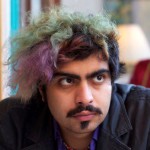Reza Abaee
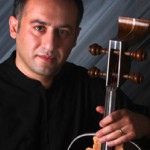
Introduced to music by his father from a young age, Iranian musician Reza Abaee learned to play the tombak and the kamancheh. He studied composition and founded the fusion music band Avijeh. He also learned to play the gheychak and later collaborated on several musical projects. He has worked as a musician and composer with Iranian National Radio-Television, and collaborated on the music of several Persian and fusion movies and music albums.
Didem Başar
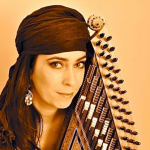
Didem Basar was born in Istanbul in 1974. She started her music education at I.T.U. Turkish Music State Conservatory in 1985. Having completed her Kanun training with Nevzat Sumer at the State Conservatory’s Instrument Training Department in 1991, she remained at the University’s Composition Department and attended the classes of Demirhan Altug and Yavuz Ozustun. She was awarded her Bachelor’s Degree on composition from I.T.U. in 1995. Her interest in examining the effects of music on society led her to study Sufi Music at Marmara University. She received her Master’s Degree on the musical analysis of Sufi Music in 1999.
Following her move to Montreal in 2007, she started playing with Constantinople Ensemble and Fenci’s Ensemble. In 2009 she formed Duo Turco with her colleague Ismail Fencioglu.
Nicolas Caloia
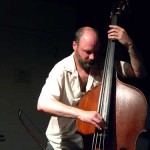
Since the early 1990s Nicolas Caloia has worked at creating a contemporary music generated by using accurately composed textures to channel collective improvisation. The goal is a music that erases the lines between improvised and composed, pop and avant-garde, good and bad. He hopes this music will satisfy the body, the mind and, above all, the heart.
Gabriel Dharmoo
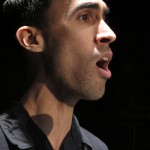
Gabriel Dharmoo studied composition at the Conservatoire de musique de Montréal with Serge Provost and finished his studies with a “Prix avec grande distinction”, the highest honor to be awarded, in both composition (2006) and analysis (2007).
Having researched South Indian Carnatic music with 4 renowned masters in Chennai (India) in 2008, his recent work is strongly focused on integrating elements of this music to his personal style.
Aside from his various artistic projects, he is very active on the Montreal musical scene where he lives and works.
Shawn Mativetsky
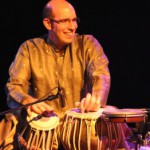
Exponent of the Benares gharana, and disciple of the legendary Pandit Sharda Sahai, Shawn Mativetsky is a highly sought-after tabla performer and educator. He is active in the promotion of the tabla and North Indian classical music through lectures, workshops, and performances across Canada and internationally. Based in Montreal, Shawn teaches tabla and percussion at McGill University. His solo CD, Payton MacDonald: Works for Tabla, was released in 2007, and Cycles, his CD of Canadian compositions for tabla, was released in the fall of 2011.
Mehdi Nabti
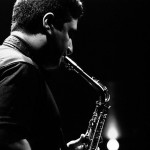
Saxophonist, flautist and composer, Mehdi Nabti was born in Paris (France) and lives in Montreal (QC, Canada) since 2009. From Kabyle (Algeria) ancestry, Mehdi Nabti holds a PhD (EHESS Paris) and a post-PhD (UdeM Montréal) in Social Anthropology. Specialist in contemporary jazz and north African music, he was a student of some of the biggest names in North African music and Jazz with François Jeanneau, Steve Coleman, Andy Emler, Phillipe Sellam, Abderrahim Amarani Marrakchi, Haj Azzedine Bettahi, Haj Said Berrada.
He was a researcher and lecturer at the University of Montreal, he regularly publishes albums of his group Nass Lounassa, Pulsar et NeoDuo, and plays in concert in Canada, Africa and Europa. Mehdi Nabti is also co-founder, artist and trainer for the Montreal organization Eureka! Art et dialogue interculturel. He participes at the musical project ”Sound Of Montréal”, Concordia University of Montréal (Matralab, 2014-2017).
Vincent Nsenguyimva
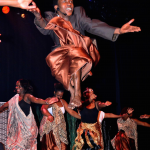
Vincent Nsengiyumva, is a renowned songwriter, singer and performer of the Rwandan traditional Music.
Vincent, a native of Rwanda was trained by Grand Parents and later Became a member of National ballet Urukerereza ,a Nyanza Cultural Rukali.
With his own band, Vincent created many albums and reputation for excitement in carrying on and expanding the Rwandan culture through his music and dance.
Guy Pelletier
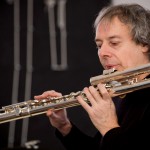
Guy Pelletier has many varied experiences: soloist, chamber musician and improviser. He is comfortable in all musical idioms and has played with contemporary, classical, jazz, rock and world-music groups. Mr. Pelletier has taken part in numerous premieres and has made several tours of North America, Asia, Europe and Oceania. He has also recorded for dozens of Canadian, American, French, as well as German radio concerts and performances in addition to close to forty CDs of various productions. He was a member of Montreal’s Nouvel Ensemble Moderne contemporary music ensemble for 17 years and the woodwind quintet Pentaèdre for 14 years. He is now member of Saïd Mesnaoui’s Moroccan music group and of the Traces tandem founded by himself and Julien Grégoire in 1990. Mr. Pelletier is also very active as a studio musician in Montreal and he teaches flute at Montreal’s Concordia University and at Trois-Rivières College, east of Montreal. For the past several years, he has taken a very serious interest in flutes from other cultures such as the Indian bansuri, the Chinese dize, the Arabic nay and the Bolivian quena.
Zal Sissokho
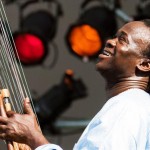
Zal Idrissa Sissokho has not only the name but also the traditions and background of this culture, in addition to an incredible talent for improvisation. Zal plays the kora and sings melodies, in both the Malinke and Wolof languages, that are inspired by or that borrow from the traditions of West Africa.
Kiya Tabassian
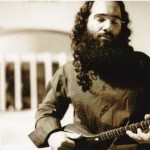
Kiya Tabassian was born in 1976, in Tehran, Iran, immigrating to Montreal in 1990. He trained in Persian music under Reza Ghasemi and Kayhan Kalhor and studied musical composition at the Conservatoire de musique de Montréal with Gilles Tremblay.
In 1998, he co-founded Constantinople, a Montreal based ensemble, which has earned an international reputation for its unique juxtaposition of early musical sources and the living traditions of the Middle East. He has recorded 11 CDs for the Atma and Analekta labels and has created with Constantinople over 35 original programs performing them at some of the most prestigious festivals and venues such as Salle Pleyel (Paris), Festival d’Aix-en-Provence (France), Festival de Musiques Sacrées de Fès (Morocco), Festival d’Ile de France (Paris), Festival Stimmen (Germany), Festival de Mexico en el Centro historico (Mexico), Schwetzinger SWR Festival (Germany) and Orford Music Festival (Canada). Over the past decade, he has staged nearly 400 concerts in 95 cities in 20 different countries.
